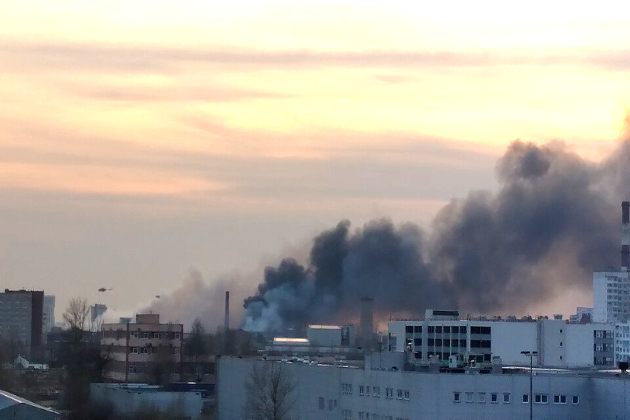Fast-growing Vietnamese economy going blue
Asia Pacific Star
06 Jan 2016, 05:30 GMT+10
Being one of the fastest-growing economies in the world and having the potential to be one of the great success stories in development, Vietnam should pursue high growth through sustainable development, especially through blue economy, foreign experts say.
Blue economy
Many Asia-Pacific countries, including Vietnam should pursue economic growth through sustainable development, ocean and coastal conservation, and innovation, Dr. Vijay Sakhuja, a former Indian Navy officer, Director of India’s National Maritime Foundation said Wednesday.
“There are several important reasons for blue economy to be high on the agenda of the Communist Party of Vietnam for socioeconomic development of the countryâ€, he added.
They include ensuring food security, exploiting non-living resources such as oil, gas, salt and minerals, contributing to economic growth and national strength, preserving biodiversity, protecting the marine ecosystem, well-being of the coastal communities that are dependent on the seas for their livelihoods, protecting areas vulnerable to sea level rise and other climate induced stressors, and harnessing the full potential of the seas for trade but in an eco-friendly environment, he stated.
A number of multilateral forums in Asia have highlighted the importance of blue economy. The concept also appeared during the 22nd APEC (Asia-Pacific Economic Cooperation) Leaders’ Meeting which called upon the member states to build partnership through ocean cooperation.
Asia-Pacific countries should further tap potentials from the seas, including fishery, shipbuilding, maritime transport, and oil and gas exploitation, Dr. Sakhuja said, noting that Vietnam and India are jointly exploring and exploiting offshore oil and gas fields in the South China Sea. Vietnam and India’s blue economies are good models for other countries to follow, he stated.
High growth
Dr. Sakhuja stated that the Communist Party of Vietnam and the Vietnamese Government have succeeded in putting forth sound orientations and policies and then enforced them, resulting in political stability, high economic growth, improved infrastructure and investment climate, and better quality of life.
In 2015, Vietnam managed to uphold macroeconomic stability, remove many obstacles to production and business, restructure its economy in association with changing growth model, and improve efficiency and competitiveness of its enterprises. Meanwhile, the country continued to develop other fields such as culture, education, science and technology, while protecting environment, improving people’s life, and accelerating administrative reform and fight against corruption and wastefulness.
In late December 2015, Vietnam’s General Statistics Office announced that the country’s GDP is estimated to grow 6.68% in 2015, higher than the target of 6.2% set by its National Assembly, the top legislature, and the highest in the last 5 years. The GDP per capita in 2015 is estimated at 45.7 million VND or 2,109 USD, increasing by 57 USD against 2014. Meanwhile, Vietnam’s consumer price index, or inflation rate, increased only 0.63% against 2014, securing the lowest level in the last 14 years.
Vietnam’s agricultural production value in 2015 rose 2.6% against 2014. Meanwhile, its industrial production increased 9.8%. In 2015, a total of 94,754 enterprises with total registered capital of 601.5 trillion VND were established, posting respective rises of 26.6% and 39.1% against 2014, while 21,506 existing enterprises resumed operations after a pause in hard times.
According to the Vietnamese Ministry of Planning and Investment, the country lured 22.76 billion USD worth of FDI in 2015, up 12.5% over 2014. Specifically, it licensed 2,013 fresh FDI projects with total registered capital of 15.58 billion USD, and saw 814 operational foreign-invested projects raise their capital by 7.18 billion USD. In 2015, Vietnam made export turnovers of some 162.4 billion USD, up 8.1%, and import turnovers of 165.6 billion USD, up 12%.
The Vietnamese Ministry of Labor, Invalids and Social Affairs said that by the end of 2015, the country had 54.61 million people aged 15 upwards, including 48.19 million people in the working age. Vietnamese labor productivity annually rose by an average of 3.9% in the 2006-2015 period.
Economic integration
In 2015, Vietnam deepened and broadened regional and international economic integration, signing important free trade agreements with the European Union, South Korea and the Eurasian Economic Union. Meanwhile, Vietnam concluded negotiations on Trans-Pacific Partnership (TPP), becoming one of its 12 founding members. After being approved by the 12 countries, TPP will become the world’s biggest free trade area with 800 million consumers.
On December 31, 2015, the ASEAN Community was formally established on three pillars. The establishment of the ASEAN Economic Community will be a significant milestone in the economic integration of a wider market with 625 million people and GDP of about 2,700 billion USD. There will exist a common market with no trade barriers, tariffs of the 10 countries in the region will be cut down to 0%. People will have opportunity to use better quality goods at lower prices due to competition, skilled labor will be moved to the appropriate places. It will be easier for the countries to attract investment of each other when legal procedures are removed.
Goods will be traded in the ASEAN Economic Community the same as they are traded domestically. Economy of the countries is predicted to grow more. “In particular, Vietnam’s economy will increase to 14.5%,†predicted Dr. Tran Dinh Lam, Director of the Center for Vietnamese and Southeast Asian Studies in Ho Chi Minh City. To promote the development of a peaceful and prosperous community, the role of ASEAN becomes more important in shaping a new mindset, sharing resources and cooperating among member countries for economic development, he said.
Regarding TPP, the World Bank (WB) in Vietnam stated in December 2015 that among the current TPP signatories, Vietnam has unique comparative advantages, particularly in labor-intensive manufacturing. On the economic impacts, simulations suggest that the TPP could add as much as 8% to Vietnam’s GDP, 17% to its real exports, and 12% to its capital stock over the next 20 years. Despite various implementation challenges, the impact of the TPP on Vietnam is expected to be positive. “The recently concluded TPP will not only improve market access, but also serve as a critical anchor for the next phase of structural reforms in Vietnam,†Sandeep Mahajan, lead economist for WB in Vietnam, said in December 2015.
Adam Sitkoff, Executive Director of the American Chamber of Commerce in Hanoi, stated that the agreement will have a transformative effect on Vietnam’s business environment and offers new opportunities to help the country’s strategic drive to industrialize, modernize and globalize. “This agreement will enable the private sector greater access into key markets, will stimulate competition, will attract additional foreign investment, and will help build key supply chain infrastructure, thus creating significant opportunities for Vietnamese businesses, and jobs and higher incomes for Vietnamese workers,†he said.
Foreign expertise
To bring into play its strengths and eliminate its weaknesses, Vietnam needs to reform rules in order to create an attractive and competitive business and economic environment, Sitkoff recommended.
“Vietnam needs to ensure that WTO commitments are being implemented on-time, and with the spirit of creating a more efficient and competitive economic climate, especially in the areas of investment and services,†Sitkoff said. Vietnam also needs to create key infrastructure sufficient to support the type of investment and economic growth that investors wish to see, especially in the important areas of power and transport. Vietnam needs to invest adequate resources and welcome more FDI in education to ensure that it has a skilled workforce of managers, engineers and manufacturing technicians who can move up the value chain as labor costs continue to rise.
According to Sitkoff, Vietnam needs to take more aggressive action to address the ongoing problems in the banking system - actions already outlined by the government and banking community. And the country also needs to move forward with the difficult task of restructuring state-owned enterprises to ensure they are managed with transparency, responsibility, and accountability, and that the enterprises operate on a level playing field with both foreign and domestic private sector firms.
“These issues are not easy, fast, or inexpensive to solve. However, implementing solutions on these issues will boost investor confidence, will help ensure that Vietnam remains an attractive and competitive destination for foreign investment, and will renew the country’s growth model,†stated the director of the American Chamber of Commerce. Share
Share
 Tweet
Tweet
 Share
Share
 Flip
Flip
 Email
Email
Watch latest videos
Subscribe and Follow
Get a daily dose of Asia Pacific Star news through our daily email, its complimentary and keeps you fully up to date with world and business news as well.
News RELEASES
Publish news of your business, community or sports group, personnel appointments, major event and more by submitting a news release to Asia Pacific Star.
More InformationAsia
SectionIndia’s March quarter GDP accelerates to 7.4%, defying annual trend
NEW DELHI, India: India's economy hit a four-year low of 6.5 percent, lifted by an impressive fourth-quarter growth at 7.4 percent....
TikTok asks Ireland High Court to halt data ban to China
DUBLIN, Ireland: TikTok is asking the High Court to stop a decision that could block the transfer of user data to China within six...
South Korean candidate Lee seeks constitution change
SEOUL, South Korea: On May 30, South Korea's leading left-wing presidential candidate, Lee Jae-myung, said he wants to change the Constitution...
Tough competition, weak economy hits European investments in China
BEIJING, China: European companies are spending less and cutting back on investment plans in China because the Chinese economy is slowing...
Lee Jae-myung leads South Korea election race after amazing comeback
SEOUL, South Korea: Lee Jae-myung, a liberal South Korean politician, is leading in the polls ahead of the June 3 snap presidential...
Chemical plant blast in eastern China kills 5, injures 19; 6 missing
BEIJING, China: Six people are still missing and rescue teams continued their search on May 28 after a powerful explosion at a chemical...
Business
SectionIndia’s March quarter GDP accelerates to 7.4%, defying annual trend
NEW DELHI, India: India's economy hit a four-year low of 6.5 percent, lifted by an impressive fourth-quarter growth at 7.4 percent....
U.S. layoffs rise, profits fall as tariff concerns cloud outlook
WASHINGTON, D.C.: A sharp rise in jobless claims and a slump in corporate profits are adding fresh signs of strain in the U.S. economy,...
U.S. stocks make modest gains as tariffs uncertainty unsettle markets
NEW YORK, New York - U.S. stocks rose Monday but gains were limited due to more tariffs uncertainty as the U.S. prepares to take on...
JetBlue to share JFK slots as United expands New York footprint
LONG ISLAND CITY/CHICAGO: JetBlue and United Airlines are teaming up to offer travelers more flexibility and rewards, announcing a...
Tourists shift from U.S. to Europe as spending surges
MADRID, Spain: Europe's tourism sector is poised for a strong 2025, with international visitor spending projected to grow by 11 percent...
Tough competition, weak economy hits European investments in China
BEIJING, China: European companies are spending less and cutting back on investment plans in China because the Chinese economy is slowing...











